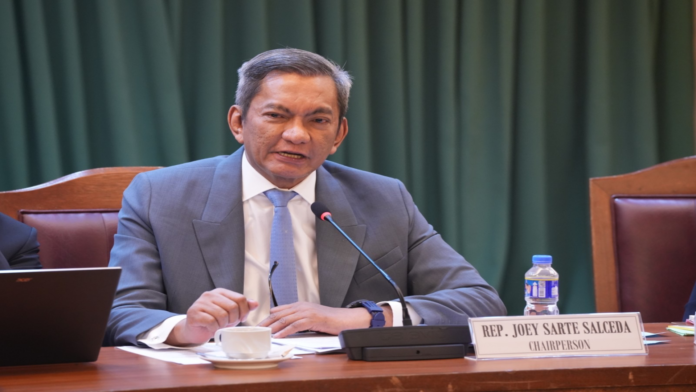A House leader on Friday said the Philippines’ entry into the sovereign carbon credit market under the 2015 Paris Agreement could be a key accomplishment of the Marcos administration.
House ways and means committee chair Joey Salceda made the statement following the signing of a memorandum of understanding (MOU), which would allow the Philippines to participate in the trading of Certified Emissions Reductions (CER), more commonly known as voluntary carbon credits, and Internationally Transferred Mitigation Outcomes (ITMOs) between countries, which include “sovereign carbon credits.”
The MOU was between the Climate Change Commission, Maharlika Carbon Technologies, LLC, and LMC Consultancy (Luntian) as the private partner.
Under the agreement, the company will help the Philippine government set up the registry which will link to the United Nations Framework Convention on Climate Change (UNFCCC).
“In short, it sets up the foundation for us to be in the market. There is a race among developing countries to be the first to sell sovereign carbon credits in the global market, and the Philippines should be in that race. That will be a key PBBM (President Ferdinand R. Marcos Jr.) accomplishment, if ever,” Salceda said.
Countries and companies buy carbon credits to offset their emissions and meet their target net emission levels.
“In recent years, there has been a push towards government-backed carbon credits, as some perceive them as more credible sources of emissions reduction,” Salceda said.
Salced said the entry into the carbon credits market could bring in an initial USD14 billion worth of benefits to the country, in cash and in kind “like climate benign technologies, which are much needed for the Philippine’s shift towards sustainable socio economic development.”
He noted that the law and the incentives are already in place for “making it work”, adding that the Philippines “should aim to be the first country in Asia, and perhaps the world, to sell sovereign carbon credits.”
He said the new Public-Private Partnership (PPP) Code will accelerate the country’s carbon credits efforts, because it identifies carbon credits as a sovereign asset that can be subjected to PPP arrangements.
“That means the private sector can engage in projects and partnerships with the national government that generate and package carbon credits,” he said. “This will be very good for us, and the tax incentives also already exist for renewable energy companies who want to work with us here.”
Salceda cited Section 15 of Republic Act No. 9513, or the Renewable Energy Law, which exempts the sale of carbon emissions credits by renewable energy developers from any and all taxes.
“We have not been able to maximize that provision. That is why I will be working with the PPP Center, the CCC, and the DOE (Department of Energy) so that we can come up with joint guidelines on how the private sector and the government can work together on this,” Salceda said.
Salceda expressed hope that such initiatives will build financing toward the country’s “clean energy transition.”
“President Marcos set the tone early on in his term that he will be a Green President. Making the Philippines a pioneer in carbon credits will be a key accomplishment. It will also provide much needed financial resources for our development,” Salceda said. (PNA)
Photo credit: House of Representatives Official Website


